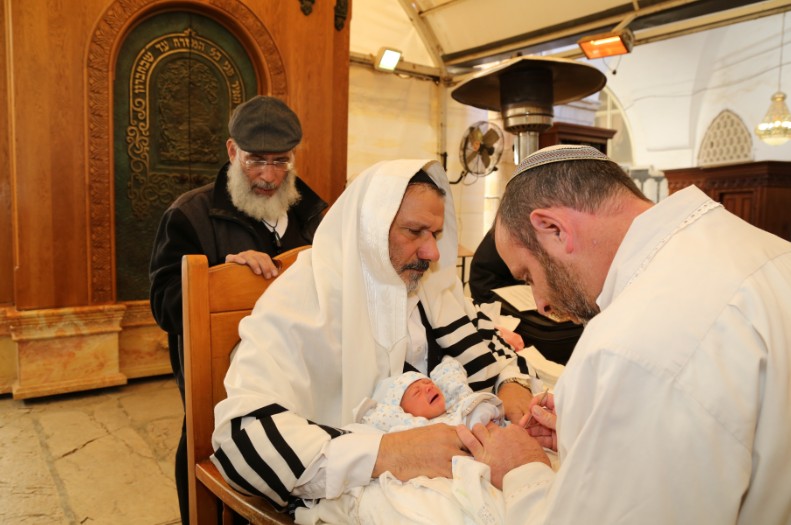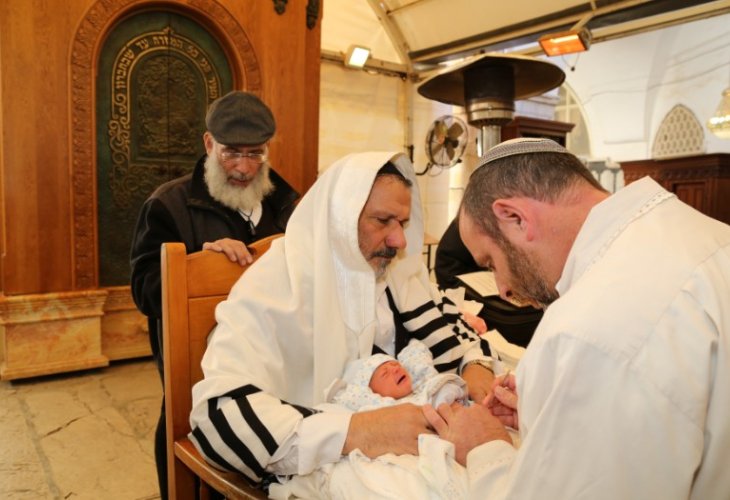A Father's First Commandment
Brit Milah, or circumcision, is the first mitzvah (commandment) that a Jewish father is obligated to perform for his son. This foundational act is performed on the eighth day after a baby boy's birth, as it is written: “And on the eighth day, every male among you shall be circumcised” (Genesis 17:12). If the eighth day falls on Shabbat, the mitzvah is still performed, underscoring its significance. However, if the procedure is delayed for medical reasons, it is postponed to a weekday.
The commandment of circumcision is intimately associated with Abraham, the first to fulfill it at God’s command. Through this act, Abraham impressed upon his descendants the spiritual mark of completeness. This is why the mitzvah is not only physical but profoundly symbolic. It is a sign of the eternal covenant between Hashem and the Jewish people.
Brit Milah is referred to as a "brit" (covenant) because it is a physical sign engraved in the flesh, signifying the everlasting bond between Israel and the Creator. In fact, three mitzvot in the Torah are referred to as an “ot” (sign): Brit Milah, Shabbat, and Tefillin. Each one represents a point of Divine connection that anchors a Jew in an everlasting relationship with Hashem.
 Illustration (Photo: Gershon Elinson / Flash 90)
Illustration (Photo: Gershon Elinson / Flash 90)A Joyous Celebration of Spiritual Commitment
In Jewish tradition, Hashem did not create the human being fully formed, but intentionally left the body in a state that calls for refinement. This symbolizes the broader spiritual mission of each person: to take raw potential and develop it through conscious effort. Just as the body is brought to a state of completion through Brit Milah, so too the soul must be cultivated through discipline, growth, and refining our character traits.
Following the Brit Milah, it is customary to hold a celebratory meal known as a seudat mitzvah. This festive meal expresses the family's joy in welcoming a new "soldier" into the service of the King of Kings. More than a family tradition, it is a declaration of happiness and commitment: a celebration of joining the ranks of those who joyfully perform Hashem’s commandments.
A long-standing tradition maintains that Elijah the Prophet attends every Brit Milah. This custom stems from a moment in Elijah’s life when, pursued by Queen Jezebel, he lamented that the Jewish people had forsaken God's covenant, saying: “For they have abandoned Your covenant” (I Kings 19:10). In response, Hashem declared that Elijah would henceforth be present at every renewal of the covenant, witnessing that His people had not turned away. This is the origin of the practice to prepare a special seat, the Kisei Shel Eliyahu (Elijah’s Chair), to symbolically welcome the unseen angel who testifies to the enduring bond between God and His people.
Brit Milah is far more than a tradition. It's a deep statement of faith that reaffirms our Jewish identity. From the days of Abraham until today, it marks the beginning of a lifelong journey in partnership with the Divine.


